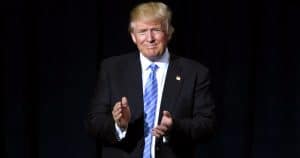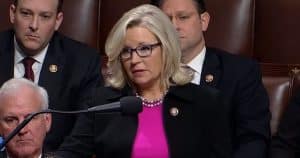Cheney's USAID defense sparks debate
Former GOP Congresswoman Liz Cheney has found herself in the middle of a social media firestorm regarding her past employment at the United States Agency for International Development (USAID), amid a wider controversy involving billionaire Elon Musk and the agency's recent closure.
Critics from conservative circles took aim at Cheney's defense of USAID, accentuating the complex dialogue surrounding her role in the agency and Musk's influence on its future.
The controversy began when conservatives criticized Cheney via the social media platform X following her remarks defending her tenure at USAID. Previously a public ally of the government's international economic development efforts, Cheney's defense of her work brought significant backlash from online commentators.
Criticism of Past Employment and USAID's Closure
The flurry of online activity stems from Musk's actions, which have significantly shifted USAID into the spotlight, focusing attention on its recent cessation. Many commentators have been quick to assign blame, casting Cheney in an unfavorable light due to her historical association with the agency.
In response to the criticism, Cheney spoke about USAID's accomplishments, particularly during the Cold War era, emphasizing its focus on American principles of democracy and freedom. Her defense was met with skepticism, however, particularly due to Musk's influence in shaping contemporary perceptions of the agency's value.
During a discourse on X, Musk merely offered the word "interesting" in reply to a post from Mike Benz critiquing Cheney's links to USAID, a move interpreted by many as sparking the ensuing backlash. This interaction underscored a broader controversy, feeding into public debate on USAID's effectiveness and expenditures.
Secretary of State Rubio Takes Over Leadership
Adding to the commotion, USAID reportedly came to a halt amid accusations of profligate financial practices, leading Secretary of State Marco Rubio to step in as interim director. Rubio has declared intentions to replicate changes he is implementing at the State Department within USAID, further fueling discussions about the agency's management and future operations.
The current status of USAID personnel remains undetermined, as many are in a state of flux due to the recent organizational shifts. These changes have sparked anxiety about job security among agency employees whose futures are now in jeopardy due to the new managerial directions expected under Rubio's oversight.
Liz Cheney attempted to redirect the conversation by recalling USAID's historic significance, particularly during America's ideological face-off against Soviet influence. She underscored America's past commitments to global democracy but received critical and oftentimes personal retorts from opponents.
Responses From Public Figures on the Matter
Among the critical voices, political figures and commentators voiced their opinions. Mollie Hemingway weighed in, arguing against what she perceived as Cheney's disparaging comments about Musk's naturalized citizenship. Hemingway pointed out Musk's clean record compared to Cheney’s political legacy. Others, like Vernon Jones, contended Cheney's stance appeared to prioritize foreign interests above domestic contributions.
Commentator Joey Jones referenced Cheney's familial military associations, expressly criticizing decisions regarding Iraq that led to significant military engagements. Chris Barron added critique by questioning Cheney's apparent anti-immigrant sentiments, highlighting perceived hypocrisy within her statements.
Commentator Samantha Janney took a different angle, asserting that Musk's one-word response was telling of Cheney's sensitivity and public reactions. This interpretation fed into a broader narrative critiquing Cheney’s connections to the agency she once worked with and illustrated the complex web of opinions surrounding her career and USAID's role.
Media and Government Reactions Emerge
Response from more established entities added fuel to the fire. The White House delivered a pointed analysis of USAID, labeling its practices as "unaccountable" in a public release, which critiqued the agency for channeling significant funding into questionable, ill-monitored projects.
Meanwhile, Mike Benz contributed by drawing parallels between Cheney and other prominent figures linked to USAID backgrounds, suggesting that the agency's affiliations often include influential political families.
As the discourse unfolded, Rubio reiterated his delegated administrative authority by announcing comprehensive organizational reforms similar to those underway at the State Department. The anticipated changes have neither quelled public discourse nor illuminated USAID's trajectory as discussions of its past and present shape public understanding.
Ultimately, the story encompassing Liz Cheney, Elon Musk, and USAID unravels an intricate political dialogue, reflecting broader confrontations concerning governmental efficacy, personal political legacies, and the roles individuals play in shaping institutional histories. Through fierce exchanges and critical evaluations, the societal implications of those engagements are evident.




